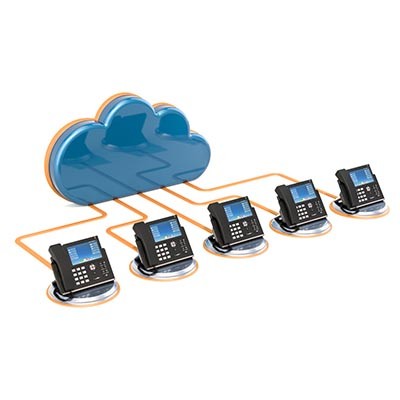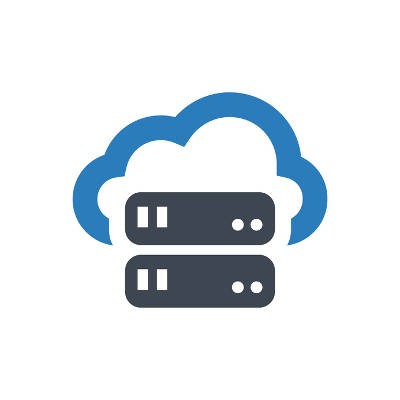k_Street Consulting, LLC Blog
Many organizations have become reliant on cloud computing due to its cost efficiency and accessibility to computing resources. However, complications with data security often arise. One way to gain control and maintain accessibility is to use a private cloud. This article explores why a business might choose a private cloud over more affordable public cloud platforms.
Doing business using the cloud is now commonplace, but every business is different and needs to fit its IT infrastructure to its operational requirements. This is possible, but trying to fit a one-size-fits-all solution into a complicated operational structure will cause more harm than good. In this month’s newsletter, we wanted to give five general tips to consider when you want to deploy the cloud in your business.
For competitive people, hearing the words “can’t win ‘em all” is infuriating. You want to win! These words, however, are completely true. Sometimes in business, you just lose. You may not be able to meet every deadline or win every sale, but there are things you can do to put your business in the best position to meet your goals. Today, we thought we would list a few things having the right technology strategy can do to help your business.
The cloud is a remarkable innovation that businesses of all industries and sizes can utilize to scale growth and operations. How you use the cloud, though, will change depending on your company's specific pain points and requirements. How can you invest in a cloud solution that ticks all your boxes? It starts with assessing whether you want to utilize a public, private, or hybrid cloud infrastructure.
Finding affordable data storage isn’t the challenge it used to be. In fact, some sources say the costs are dropping by 20-to-30 percent annually. This means that businesses that thought cost was a roadblock to using the cloud for their data storage needs, can rest assured that they can confidently go on and secure the amount of secure cloud storage they need.
The telephone cemented itself as a valuable tool of business long ago, but the ways that businesses use these devices have changed over the years. Thanks to advancements in technology, telephones can still be used by businesses even today, albeit with some modern adjustments to stay competitive and useful. One of these telephony solutions is Voice over Internet Protocol, or VoIP for short.
The cloud has been a good resource for business for quite a while. Just how good? Currently, nine-out-of-ten businesses operate with some type of cloud-hosted solution. In fact, by the figures, we’re definitely looking at a cloud-hosted future. We thought it would be interesting to take a look at some of the cloud computing stats and trends to paint a picture of just how the cloud has grown up.
Cloud computing is turning into a tool that is universally used by businesses to enhance remote access and provide the scalability for tools that allows a business to get the best bang for their buck. This month, we’ll describe how modern cloud computing works and why it is such a huge potential benefit for your business.
Businesses must often store documents for the purposes of compliance, but anyone who has managed a document storage system that uses physical documents, like filing cabinets or otherwise, knows that it can get a little complicated and messy. Technology offers better alternatives that make things easier, efficient, and most important of all, more secure.
There is no denying the versatility that technology like the cloud can provide, but it often comes with hidden costs that might affect its cost-to-benefit ratio for your organization. Here are some of these hidden costs, as well as what you can do to minimize the impact they have on your bottom line.
Email is a solution that your business uses just about every single day, and as one of your central methods of communication, you need to consider how it’s managed and maintained. Thankfully, modern businesses have more choices available to them than ever before, some of which are so hands-off and easy that they can completely change how a business views their email.
You may already be familiar with the concept of hosting your business’ technology on your own in-house network, like a server unit, but some businesses struggle to manage hardware like this effectively. In all honesty, you can get largely the same benefits of an in-house server through a hosted solution. Nowadays, the cloud makes utilizing cloud services easier than ever.
The cloud is a popular choice for businesses that need access to tools to sustain operations, but there is an innate flaw that comes from hosting anything in an online environment: security. Do not pretend that security is not an issue for your cloud-based resources—failing to acknowledge the importance of security could be a fatal mistake for organizations that leverage cloud-based technology resources.
The cloud is a great tool that lets businesses of all industries and sizes revisit the way operations are handled, but it’s not always clear what the best approach is for your specific business. What are some ways that you can utilize the cloud, and why is it so important that you start thinking about these benefits now?
For all the communication services and tools available to businesses nowadays, the telephone remains a staple in everyday processes—despite it often being difficult to manage and expensive to maintain. This is largely because today’s technology enables businesses to use a telephone system that exceeds the capabilities once provided by telephony, for a far more manageable investment.
With cloud computing being utilized by a majority of businesses nowadays, it’s not as big of a surprise when one wants to move files from a locally-hosted server to a cloud server; or, from a cloud server to a new cloud server. This presents a fair amount of problems that you have to be mindful of if you want to move the data and applications over properly. Today, we’ll take a look at some problems you may face, and how to make sure they don’t weigh down your next cloud migration.
Traditionally, if a business needed a solution to a problem, they would research which technology is the best for the problem they had and go out and buy it. If a company didn’t have the money to buy that solution, they would borrow to buy it so that their business wouldn’t stagnate and fail. In today’s tech-driven business environment there is a much better option than mortgaging your business just to save it.
The cloud has long demonstrated its many benefits to a business’ operations, but perhaps never so much as it has now. With so many people remaining in their homes, the only way that any business (essential or not) can get anything done is to adjust to remote operations—something the cloud is especially useful in. If ever there was a time to take advantage of the cloud’s capabilities, it would be now.
Collaboration has always been key to the success of businesses, and with the cloud technologies now available, collaboration is possible in more ways than ever. COVID-19 has made business connectivity more important than ever, so we saw it fitting to recognize some of the cloud’s collaboration options. They come in a few distinct flavors:
The cloud is an undeniably useful technology to implement in your business’ processes, and is a very popular option as a foreseeable result. This does not mean, however, that the cloud isn’t subject to some risks. Let’s go over a few risks the cloud presents, and how you can mitigate them by selecting the right provider.
When you look at cloud services, it can be easy to wonder how it is so beneficial for businesses. After all, the monthly service charges are attractive, but how do they provide the value outside of cost? To understand how the cloud brings rapid and sustainable ROI, it may help to look at an analogy.
Today, cloud services can be used for about every facet of business. In fact, your business probably uses the cloud for some very important parts of your business. With so many options to choose from, business owners often develop a cloud strategy that includes software as a service (SaaS), infrastructure as a service (IaaS), and many more options.
Servers are the brains of your business insofar that’s where most of the critical information is stored, and a server failure (with no contingency plan in place) could spell the end-times for your business. With that information, you should be looking for the most reliable option that works for you. Today, we’re going to look at the differences between using hosted servers vs. paying for your own in-house server.
In a nod to the strength of modern cloud networks, businesses are now able to gain significant flexibility when making their IT decisions. There are innumerable solutions designed to speed up business, transfer cost, and provide businesses with workable computing platforms they once paid tens of thousands of dollars per year for. For today’s tip, we will look at how using hosted computing solutions provides significant business benefits.
Telephones have been in the office for so long that it would be weird if they weren’t in the office in some way, shape or form. With the advent of cloud-based options, however, telephone communications have become much more sophisticated and accessible. A voice over IP system that uses the Internet is one way that you can take advantage of modern technology to reduce costs and optimize your network.
In 2018, Amazon was struck by a considerable attack, with hackers taking funds from approximately 100 seller accounts, according to a Bloomberg report. Between May and October 2018, Amazon sellers were struck approximately 100 times, draining funds from the seller control platform to augment their own funds. According to the investigation, the first fraudulent transaction took place on May 16, 2018, with an undisclosed amount being stolen. The hackers utilized phishing attacks in order to scam their targets.
Cloud computing is a major part of most businesses today. In the past, businesses had to pay in-house technicians to research, design, and purchase the infrastructure needed to run an onsite server. This was expensive, especially if a business wasn’t able to get the solution they needed the first time around. Cloud computing has changed things to the point where the costs associated with implementing these solutions has decreased considerably, all while solving the problem and improving operations. We’ll help you take a look at cloud computing as a way to change up and improve the way your business functions.
The cloud is one of the most valuable tools available to modern businesses, but the extent to which organizations utilize it will vary depending on their specific needs. For example, some organizations might be fine with the limited control offered by the public cloud, but others might need more dynamic features and control over their data with a private cloud. We’ll help you determine which is right for you, as well as some of the specific considerations needed for a private cloud solution.
All businesses need consultation from time to time. After all, nobody can be an expert in everything. These professional services, including those provided by lawyers, financial consultants, accountants, advertisers, and marketing specialists are all important to the success of any organization, but just like any other business, these companies have IT needs.
The private cloud computing market is growing rapidly, and for good reason. Data security and privacy concerns have spurred many businesses to consider moving their data from public cloud offerings to private cloud platforms. One problem the average business would see with this trend is that putting together a comprehensive private cloud system has its own challenges, some of which we will confront today.
Since companies have begun offering services in the cloud, organizations of all types have taken advantage of utility computing in hosted environments. One platform that we tend to see quite a lot of is Hosted VoIP. What makes a cloud-hosted business telephone system more attractive to the modern business owner than one they host onsite? Today we’ll take an in-depth look at the two options.
There aren’t many technological assets as important for the modern business than its communications solutions. The telephone, while being one of the oldest currently-utilized communications systems available, is still the most utilized. Today, we will look at business telephone systems and why choosing Voice over Internet Protocol simply makes sense for your business.
Telephones have been around for so long that nobody alive today lived in a time where they weren’t in use. While the general use for the telephone has remained the same, the major difference between older telephone systems and many of the telephone platforms available today is how they are deployed. Businesses have more options for telephone services today than they have ever had before, and with so many options at your disposal, we’re happy to help you weed out the right one for you.
It’s no secret that cloud computing has become a major part of what most small businesses’ operations. One aspect of business administration that many businesses keep in-house is their HR department. Today, we’ll take a look at HR and payroll software, and how moving your business’ human resources department to the cloud is a good solution.
Does your business use any cloud-based applications to go about its daily duties? Chances are that with today’s increasingly online business environment, it’s not out of the question for many organizations to have not just parts of their infrastructure in the cloud, but entirely online infrastructures at that. If you’re still considering the cloud as a tool for your business, we’ll provide a primer of sorts to help you make an informed decision.
Business technology can often augment communications and make collaboration easier, but administrators sometimes believe that these added perks come with a considerably higher price tag. When a solution comes around that can save money, like VoIP, business owners should consider it with serious intent to invest, as it can usher in an age of improved operations and efficiency for your employees, as well as a higher bottom line overall.
Has your business moved to the cloud yet? If not, you’ve got some work to do--it’s only a matter of time before the need for the cloud completely overshadows your organization. Thankfully, it’s only challenging to move to the cloud if you don’t have a group of professional IT technicians helping you.
Efficient utility software deployment has been a priority for businesses for much of the past three decades, but today’s software developers are beginning to more frequently offer their titles as a service, giving end users the ability to utilize powerful software solutions from anywhere, for what is often a reasonable monthly payment. The dissemination of useful computing resources from the cloud, whether it’s a private cloud server, or a public cloud platform through a reputable cloud provider, can be of great benefit to your business.
The office telephone has been a staple in the business environment for generations, but the extent that each organization uses their telephone will vary. Factors like the number of users, telephone handsets, and wiring required will influence how much use you get from your telephone solution. However, these questions don’t have to be as difficult to ask if you consider the many benefits of a hosted phone system.
The cloud has proven to be an extremely useful tool for the modern business. Not only does it provide anywhere-anytime access to applications, processing, storage, et al; it also delivers those products as a service, allowing you to budget for recurring costs rather than major upfront ones. This provides your organization with functional, supported, and secure computing environments that eliminate a lot of the support costs that traditional computing environments require. It sounds like a perfect scenario for small and large businesses alike, but things aren’t always what they seem, as a lot of cloud users have found that they have incurred several hidden costs by using cloud platforms. Today, we take a look at these hidden costs.
The cloud is a great tool that lets businesses take advantage of goods and services in never before seen ways. How does your organization use the cloud? Developers are trying to leverage the cloud to best assist businesses just like yours with their day-to-day functions, all the while improving flexibility and access to important information. Here are five cloud-based applications that your organization can benefit from.
Thanks to mobile devices and remote access, businesses around the world are freeing their employees from the tethers of their desks and allowing them to work remotely. Some companies have employees that work remotely all of the time, which presents the question of how you keep them connected to the workplace, productive with their time, and part of your business’ culture. This week we’ll go over some tips to help your remote employees be as successful with their time as possible.
Depending on your business’ operations and industry, there’s a solid chance that your company has some sort of investment in cloud storage. Over 85 percent of businesses today use some type of cloud platform, and many of them use a multi-cloud approach to their organization’s IT. At the center of this trend is cloud storage. This month, we take a look at the types of cloud storage and how one (or more) of the types can help meet your business’ needs.
Cloud computing is an ever-growing industry, and it’s only going to grow more popular as time goes on. More businesses than ever have started to adopt the cloud in at least some capacity. Is your company one of the few that haven’t yet moved to the cloud? If so, you’ll want to at least consider it, as your business could gain considerable benefits from doing so.
Paper documents can hold businesses back for several different reasons. For example, have you ever tried to move to a new office and drag along countless heavy filing cabinets? What about digging through folders just to find one specific document? It’s difficult to sort them in the first place as it is. Technology has made this job much easier, providing businesses with tools to better manage and maintain their wealth of paper documents in the form of a digital cloud environment.
Generally, small businesses will only have, at the most, a couple of servers in the office that are dedicated to storing or sharing data across an in-house network. These machines are absolutely critical to the success of your organization, as without them, you wouldn’t be able to access or store important information. If you want to optimize the way your server infrastructure is set up, however, virtual cloud-based servers can offer a significant benefit for your organization.
If we asked you to think of a business technology that doesn’t take advantage of the cloud in some capacity, would you be able to come up with one? Cloud computing has become a part of almost every business endeavor, and for good reason. SMBs can leverage the cloud for any number of services or solutions, including email, data storage, server virtualization, and so much more.
How much has your business invested in its communications technologies? If your business is like many others, it relies heavily on the functionality of its organization’s communications platforms. You might have a VoIP system filled with features, but are you taking full advantage of them? Here are three ways you can get the most out of your VoIP solution.
Your business’s productivity suite, be it Google Apps for Work or Microsoft Office 365, is a critical component for your success. These services, when implemented in the cloud, can be major game-changers, and it’s thanks to the convenience of mobile data and application access that have led to such vigor in the development of the cloud.

In an infamous 2012 survey by Wakefield Research, the ignorance of the general public regarding cloud computing was revealed: 51 percent believed that stormy weather interferes with cloud computing, and 29 percent thought that the cloud was an actual cloud. Furthermore, what may elude many computer users is the fact that a process known as virtualization is actually what’s behind cloud computing (not atmospheric conditions).
 Once upon a time, in a long lost era known as the 1990s, traditional phone systems ran rampant throughout the workplace environment. In-house workers were limited to using landline telephones to make outbound calls on a limited number of phone lines. Nowadays, thanks to the advent of the Internet, Voice over Internet Protocol (VoIP) is making leaps and bounds in the business environment, allowing for greater flexibility and functionality for a fraction of the cost.
Once upon a time, in a long lost era known as the 1990s, traditional phone systems ran rampant throughout the workplace environment. In-house workers were limited to using landline telephones to make outbound calls on a limited number of phone lines. Nowadays, thanks to the advent of the Internet, Voice over Internet Protocol (VoIP) is making leaps and bounds in the business environment, allowing for greater flexibility and functionality for a fraction of the cost.
 Your business is no-doubt reliant on your email solution as a critical communications component. Without it, your organization’s operations could be significantly hampered, forcing you to improvise in order to reach out to internal and external parties. As an important part of any business’s communications, it’s crucial that your email solution is as efficient as possible, but managing an email server can be challenging for the average business owner.
Your business is no-doubt reliant on your email solution as a critical communications component. Without it, your organization’s operations could be significantly hampered, forcing you to improvise in order to reach out to internal and external parties. As an important part of any business’s communications, it’s crucial that your email solution is as efficient as possible, but managing an email server can be challenging for the average business owner.
 Has your business adopted the cloud and used it to fully leverage your technological assets? The cloud is an exceptional tool that allows businesses to deploy and access information in never-before-seen ways. While the cloud is great for this purpose, these lessons can be applied to parts of your in-house IT infrastructure.
Has your business adopted the cloud and used it to fully leverage your technological assets? The cloud is an exceptional tool that allows businesses to deploy and access information in never-before-seen ways. While the cloud is great for this purpose, these lessons can be applied to parts of your in-house IT infrastructure.
 With cloud computing on the rise in the business environment, it’s becoming more clear that organizations need to know what type of cloud solution will best benefit their business model. With the private cloud gaining much attention, it’s important to know what attracts businesses to it. Why should your business implement a private cloud solution, and how should you go about doing so?
With cloud computing on the rise in the business environment, it’s becoming more clear that organizations need to know what type of cloud solution will best benefit their business model. With the private cloud gaining much attention, it’s important to know what attracts businesses to it. Why should your business implement a private cloud solution, and how should you go about doing so?
 Cloud computing started out as a trend, but it’s become a staple in the modern business environment. A recent poll of IT and business executives by Harvard Business Review and Verizon shows that 84 percent of respondents have increased their use of cloud services in the past year, 39 percent of which “increased significantly.” The issue that comes from such an increase is the idea of employees accessing information that they aren’t supposed to.
Cloud computing started out as a trend, but it’s become a staple in the modern business environment. A recent poll of IT and business executives by Harvard Business Review and Verizon shows that 84 percent of respondents have increased their use of cloud services in the past year, 39 percent of which “increased significantly.” The issue that comes from such an increase is the idea of employees accessing information that they aren’t supposed to.
 The cloud is a great tool that can help your business fully leverage its technology solutions, but one of the most common problems that people associate with the cloud is that they believe it’s not nearly as secure as a private in-house IT network. However, contrary to popular belief, the cloud is a very secure medium for your data storage and deployment, particularly for your data backup needs.
The cloud is a great tool that can help your business fully leverage its technology solutions, but one of the most common problems that people associate with the cloud is that they believe it’s not nearly as secure as a private in-house IT network. However, contrary to popular belief, the cloud is a very secure medium for your data storage and deployment, particularly for your data backup needs.
 One of the greatest advancements in Software as a Service (SaaS) offerings is in cloud computing, and for good reason. The modern business is capable of expanding their operations to epic proportions, and it’s all thanks to the cloud. Have you considered integrating a cloud solution, and if so, do you know how it will affect the management of your IT?
One of the greatest advancements in Software as a Service (SaaS) offerings is in cloud computing, and for good reason. The modern business is capable of expanding their operations to epic proportions, and it’s all thanks to the cloud. Have you considered integrating a cloud solution, and if so, do you know how it will affect the management of your IT?
 If your organization hasn’t considered the cloud as a viable business solution, stop what you’re doing and check some recent statistics. You might be surprised to learn that cloud spending is the third-biggest IT expenditure. Such popularity shows that businesses are finding the benefits that the cloud has to offer to be substantial, and you too can take advantage of the cloud to more effectively leverage today’s technology.
If your organization hasn’t considered the cloud as a viable business solution, stop what you’re doing and check some recent statistics. You might be surprised to learn that cloud spending is the third-biggest IT expenditure. Such popularity shows that businesses are finding the benefits that the cloud has to offer to be substantial, and you too can take advantage of the cloud to more effectively leverage today’s technology.
 It’s been known for years that virtualizing your server is a great strategy for companies that rely on their technology. It allows them to make efficient use of their computing resources as well as limit hardware and utility costs. Many business owners are not privy to virtualized desktop options, or how to properly use desktop virtualization to improve their business.
It’s been known for years that virtualizing your server is a great strategy for companies that rely on their technology. It allows them to make efficient use of their computing resources as well as limit hardware and utility costs. Many business owners are not privy to virtualized desktop options, or how to properly use desktop virtualization to improve their business.
 When cloud computing was first introduced to the consumer market, the technology required a fair amount of explaining. Today, the cloud is widely utilized by consumers, despite the fact that 51 percent of the public believe that actual clouds are somehow involved. Due to so many people using the cloud, consumers are now approaching computing much differently.
When cloud computing was first introduced to the consumer market, the technology required a fair amount of explaining. Today, the cloud is widely utilized by consumers, despite the fact that 51 percent of the public believe that actual clouds are somehow involved. Due to so many people using the cloud, consumers are now approaching computing much differently.
 Heavy users of Google Drive may experience the issue of running low on storage space. The easiest way to resolve this problem is to give Google money and upgrade your account. Before taking this step, there are a few tricks you can do to free up Google Drive space by locating and getting rid of unneeded files.
Heavy users of Google Drive may experience the issue of running low on storage space. The easiest way to resolve this problem is to give Google money and upgrade your account. Before taking this step, there are a few tricks you can do to free up Google Drive space by locating and getting rid of unneeded files.
 The cloud offers modern businesses ways to store and run applications that couldn’t even have been imagined several years ago. While some companies have decided to go with the flow and take advantage of cloud computing, others might find that their cloud services aren’t meeting the standards set upon them. What can they do about this?
The cloud offers modern businesses ways to store and run applications that couldn’t even have been imagined several years ago. While some companies have decided to go with the flow and take advantage of cloud computing, others might find that their cloud services aren’t meeting the standards set upon them. What can they do about this?
 Proper communication is an imperative part of doing business, and nothing improves this aspect of your company better than a telecommunication system of some sort. Some businesses rely on their legacy telephone system for interoffice communication, but this can be both difficult and expensive to maintain.
Proper communication is an imperative part of doing business, and nothing improves this aspect of your company better than a telecommunication system of some sort. Some businesses rely on their legacy telephone system for interoffice communication, but this can be both difficult and expensive to maintain.
 Hardware virtualization is an increasingly popular trend in the workplace, and it’s easy to see why. However, another viable option to save on electricity and operation costs presents itself with thin clients. With the advent of virtual desktops, it’s easier than ever to take advantage of thin clients in the office, but are they right for your business?
Hardware virtualization is an increasingly popular trend in the workplace, and it’s easy to see why. However, another viable option to save on electricity and operation costs presents itself with thin clients. With the advent of virtual desktops, it’s easier than ever to take advantage of thin clients in the office, but are they right for your business?
 New technology brings all sorts of changes to the business world, and the modern business has to take advantage of these changes in order to stay competitive. One of these revolutions is cloud computing. While every professional has their own opinion of the cloud, Greg Walters of Walters & Shutwell Inc. has some interesting theories about how the business cloud will develop.
New technology brings all sorts of changes to the business world, and the modern business has to take advantage of these changes in order to stay competitive. One of these revolutions is cloud computing. While every professional has their own opinion of the cloud, Greg Walters of Walters & Shutwell Inc. has some interesting theories about how the business cloud will develop.
 Virtualization isn’t a new topic, but it sure is a hot one. Virtual servers are almost omnipresent in today’s technological world, and for good reason. They provide businesses with several benefits that help expand and preserve both a business’s data and vision, improving efficiency and productivity.
Virtualization isn’t a new topic, but it sure is a hot one. Virtual servers are almost omnipresent in today’s technological world, and for good reason. They provide businesses with several benefits that help expand and preserve both a business’s data and vision, improving efficiency and productivity.
 We're living smack dab in the middle of the data age. In fact, 90% of the world's data was generated last year. New devices and systems create crazy amounts of data, and every byte must be processed, stored, and catalogued in such a way that it can be easily retrieved from any device, anywhere. The IT industry refers to this as "Big Data," and how your business manages its data will determine your success in this new age.
We're living smack dab in the middle of the data age. In fact, 90% of the world's data was generated last year. New devices and systems create crazy amounts of data, and every byte must be processed, stored, and catalogued in such a way that it can be easily retrieved from any device, anywhere. The IT industry refers to this as "Big Data," and how your business manages its data will determine your success in this new age.
 Some businesses prefer having their own IT infrastructure over using a public cloud computing service. Given the amount of control that a private cloud model provides, it's easy to see why hosting data in-house would be attractive, but, as cloud computing technology improves, more businesses are turning to public cloud offerings.
Some businesses prefer having their own IT infrastructure over using a public cloud computing service. Given the amount of control that a private cloud model provides, it's easy to see why hosting data in-house would be attractive, but, as cloud computing technology improves, more businesses are turning to public cloud offerings.
 While desktop virtualization isn't a new thing, it is one that has been increasing in popularity for businesses over the past few years. It offers a lot more freedom with particular aspects of managing your technology, including increased reliability and security. While the physical problems of a desktop are taken care of, you'll also have the benefits of being protected from a sudden crash or wearing from old age.
While desktop virtualization isn't a new thing, it is one that has been increasing in popularity for businesses over the past few years. It offers a lot more freedom with particular aspects of managing your technology, including increased reliability and security. While the physical problems of a desktop are taken care of, you'll also have the benefits of being protected from a sudden crash or wearing from old age.
 Are you still hosting your own server? You know it can be exhausting, and that it takes up a lot of time and effort. It's just like organizing your housewarming party. If you're too busy making sure everything is good to go, nobody will be able to see the star of the party - you. What if we told you that you don't have to worry about all of the details?
Are you still hosting your own server? You know it can be exhausting, and that it takes up a lot of time and effort. It's just like organizing your housewarming party. If you're too busy making sure everything is good to go, nobody will be able to see the star of the party - you. What if we told you that you don't have to worry about all of the details?
 One of the biggest expenses for any business is owning and maintaining an IT infrastructure. Computer equipment is expensive to purchase and it's costly to upgrade and repair. Fortunately, operating an IT infrastructure doesn't have to be as expensive as the price tag indicates. You can take advantage of desktop virtualization to handle your workload for much less money!
One of the biggest expenses for any business is owning and maintaining an IT infrastructure. Computer equipment is expensive to purchase and it's costly to upgrade and repair. Fortunately, operating an IT infrastructure doesn't have to be as expensive as the price tag indicates. You can take advantage of desktop virtualization to handle your workload for much less money!
 The wonderful new technology of cloud computing is making ripples all across the world, making everything easier for businesses. Before cloud computing, companies had to utilize infrastructures in manners far less organized and efficient. By comparing doing business before and after cloud computing, you'll realize just how incredible it can be to move your company to the cloud!
The wonderful new technology of cloud computing is making ripples all across the world, making everything easier for businesses. Before cloud computing, companies had to utilize infrastructures in manners far less organized and efficient. By comparing doing business before and after cloud computing, you'll realize just how incredible it can be to move your company to the cloud!
 Small business owners and executives spend a lot of time going over the expense sheet. Most times, this is a result of not having the financial resources to do everything they want to do, when they want to do it. When your organization's growth stagnates, finding a way to turn that trend around is of paramount importance.
Small business owners and executives spend a lot of time going over the expense sheet. Most times, this is a result of not having the financial resources to do everything they want to do, when they want to do it. When your organization's growth stagnates, finding a way to turn that trend around is of paramount importance.
 Almost 20 years ago, a class of fifth grade students from Helena, Montana produced a PSA video about the future-changing possibilities of the Internet. When this PSA was shot in 1995, only 0.4% of the world's current population (16 million people) used the Internet. Now, almost 39% of the world is online, making this video scary accurate!
Almost 20 years ago, a class of fifth grade students from Helena, Montana produced a PSA video about the future-changing possibilities of the Internet. When this PSA was shot in 1995, only 0.4% of the world's current population (16 million people) used the Internet. Now, almost 39% of the world is online, making this video scary accurate!
 There's no denying that lawyers have a crucial role in western society. They are at the center of every trial, hearing, and financial exchange. Like any other business professional, lawyers tend to lean on technology to boost their effectiveness; both for their benefit and for their clients. They rely on mobile technology, hardware and software systems, and even cloud computing systems to better serve their clients. Can your practice benefit from the newest technology?
There's no denying that lawyers have a crucial role in western society. They are at the center of every trial, hearing, and financial exchange. Like any other business professional, lawyers tend to lean on technology to boost their effectiveness; both for their benefit and for their clients. They rely on mobile technology, hardware and software systems, and even cloud computing systems to better serve their clients. Can your practice benefit from the newest technology?
 It's no secret that businesses often have limited space and resources. The problem is that you need your IT infrastructure in order to do business, and when you don't have a dedicated server room, you have to house your server in a common area. This presents an annoyance since a running server sounds like an air conditioning unit on full blast.
It's no secret that businesses often have limited space and resources. The problem is that you need your IT infrastructure in order to do business, and when you don't have a dedicated server room, you have to house your server in a common area. This presents an annoyance since a running server sounds like an air conditioning unit on full blast.
 In Charles Dickens' tale, A Christmas Carol, Ebenezer Scrooge learned an important lesson that most of us already know. In order to get the best out of people, you need to give the best of yourself. For those of you who don't remember the 19th-century novella, Scrooge is a business owner who only cares about money and because of this, draws the disdain of his family and his extremely patient subordinate, Bob Cratchit. On Christmas eve, he's visited by three Christmas spirits, and as he gets a look at the reality of how his actions affect those around him, he wakes up on Christmas morning with a new perspective.
In Charles Dickens' tale, A Christmas Carol, Ebenezer Scrooge learned an important lesson that most of us already know. In order to get the best out of people, you need to give the best of yourself. For those of you who don't remember the 19th-century novella, Scrooge is a business owner who only cares about money and because of this, draws the disdain of his family and his extremely patient subordinate, Bob Cratchit. On Christmas eve, he's visited by three Christmas spirits, and as he gets a look at the reality of how his actions affect those around him, he wakes up on Christmas morning with a new perspective.
























































